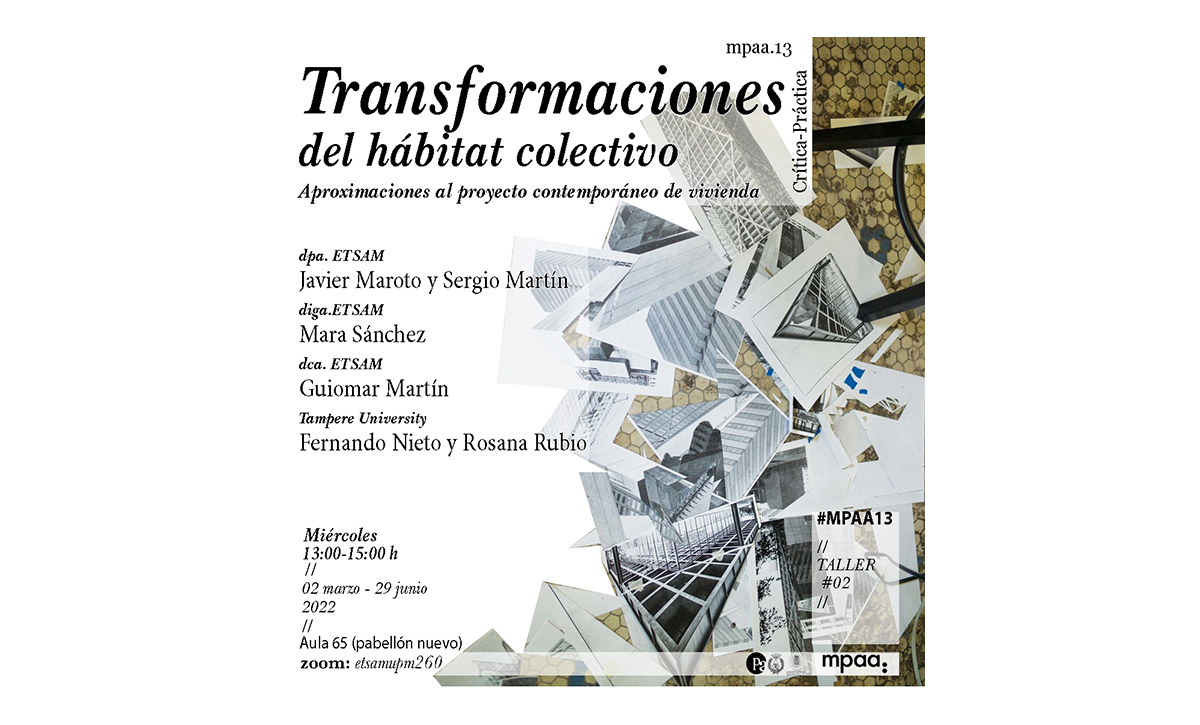The workshop called Transformations of the Collective Habitat: Approximations to the Contemporary Housing Project deals with critical practice and practical critique on architectural design, specifically with the modes of transformation of the habitat for living together. It is included in the 13th Master in Advanced Architectural Design (MPAA) of the Department of Architectural Design at the Madrid School of Architecture (ESTAM), Technical University of Madrid (UPM).
The workshop will investigate the challenges that the context of the current habitat presents to the collective housing project. Habitat is understood not only as the built environment, city or home for living, but as a whole resulting from the confluence of various forces, agents and factors of a different nature (socioeconomic, cultural, political, environmental).
Students and teachers will investigate the demands posed by various contemporary scenarios, which during the COVID-19 pandemic have been revealed even more clearly. They necessarily require transformations in the housing project, resulting in new ways of living such as the dual, extended, discontinuous or de-hierarchized home, coexistence typologies such as cohousing and co-living, spatial strategies of self-organization, self-construction, multi-usability, transformability, flexibility, adaptability and polyvalence, as well as the updating of materiality and construction systems such as modularity or prefabrication among others.
The workshop will utilise a research-by-design methodology, with the theme of transformation as a creative process capable of transmuting something into something else not only in terms of formal transformation. Obsolete housing forms of the past will be modified to make them current by taking fragments of other authors’ works to propose new, original works.
The course content is structured in six thematic modules. In each of the modules, one of the scenarios mentioned above will be addressed and students will develop a project related to the corresponding theme. The course work will be cumulative, so that at the end of the course each student will have developed a coherent investigation made up of reflections and fragmentary projects that have been worked on during the workshop.
The teaching methodology that will be used in the workshop will be mixed, including: master classes; participatory thematic classes with commented readings of texts; practical workshops and group critiques on the work carried out.
Teachers of the workshop are Javier Maroto (responsible professor), Guiomar Martín, Sergio Martín and Mara Sánchez from ETSAM, and Rosana Rubio and Fernando Nieto from Tampere University as guest teachers.

